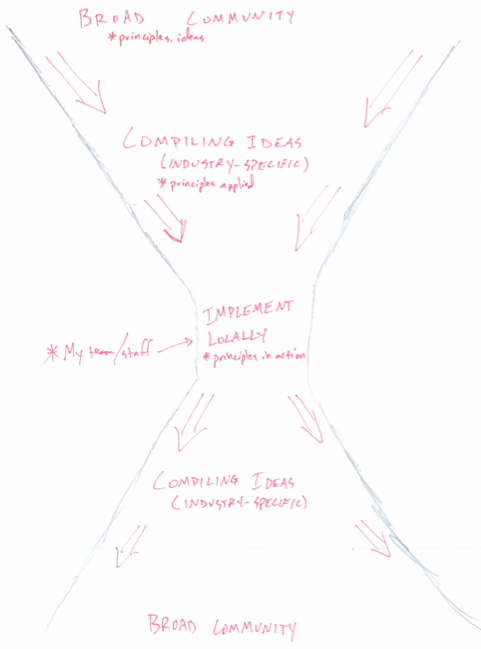If you’re a leader, you evaluate.
Well…ahem…let me rephrase that.
If you’re a good leader, you evaluate. And there are plenty of activities, events, and procedures that you can and should evaluate regularly
- Trainings
- Meetings
- Outings
- New hires
- New fires
- System changes
- New initiatives
- Outreach events
- Sermon series
- New ideas
- Old ideas
- Development days
- Financial spending
- Outputs
…and that’s just to name a few.
Evaluation should happen across the board on a consistent basis. Here are the two questions I hear asked most often:
1. What worked?
2. What didn’t work?
They’re not bad questions. And, hopefully, changes will be made based on the answers to those questions. But more often than not, the ball stops rolling. Those two questions are momentum killers. Because most people can quickly tell you what worked. And what didn’t work? Well, let’s find someone or something to blame. OR let’s spin our wheels feeling sorry for ourselves and the money and time we wasted. *insert screeching brakes sound*
Here’s a better question:
What did you learn?
I know that seems like a subtle shift, but I think it’s an important one. Instead of just blindly evaluating what worked and what didn’t…and instead of just throwing your opinion into the ring of ideas as to who or what the culprit is for the flopping of an event, this keeps the ball moving forward.
It keeps you focused on the positives and the negatives. It helps you see that, even within the parts of an event that worked, there are things that you learned. And those things that you learned can help improve for next time. It also helps you really zone in on what you learned from the side of an idea that flopped. Instead of wallowing in your fail whale, you focus on what you can learn.
My pastor, Ron Edmondson, and I sat down after a leadership training event to evaluate. Let me be honest: it was an event that flopped. We had very little participation, very little feedback, very little growth because of the event, and to top it all off…it was expensive.
When we evaluated, we jumped right into the question: What did you learn? I had learned plenty. This question helped get the momentum moving in the right direction after progress had screeched to a halt.
Any initiative can improve if you’re willing to learn. Even the best ones.
Any failure can be a step forward if you learn from your missteps.
The question for you is this:
Are you willing to learn?
Have you learned from a flopped idea?










